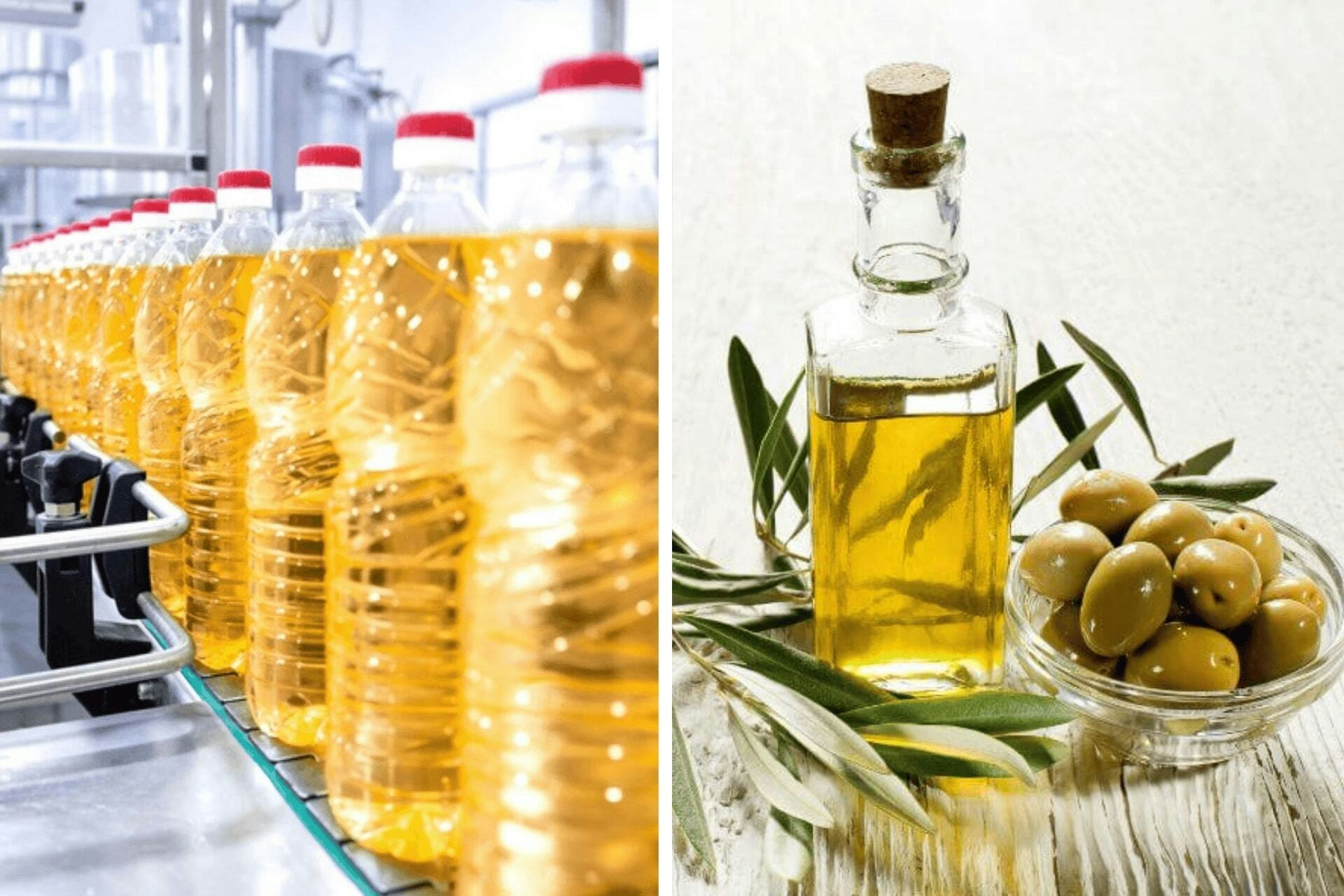If you’ve been enjoying avocado oil for its light flavor and health perks, you might be curious about other oils that can bring something similar to your kitchen. Sometimes you just want more options on hand, whether for high-heat cooking, adding variety to your meals, or finding a more budget-friendly choice.
The good news is there are plenty of alternatives. Whether you’re looking for versatility in the pan or a healthy oil to drizzle over your favorite dishes, this guide will introduce you to some fantastic avocado oil substitutes.
Let’s explore oils that are just as tasty and reliable.
What is Avocado Oil?
Avocado oil is derived from the pulp of the avocado fruit. This oil is packed with healthy monounsaturated fats, which are great for your heart and can help reduce inflammation. Along with these good fats, it’s also full of vitamin E and other beneficial nutrients ❶.
Its mild, buttery flavor is ideal for various culinary uses, including salad dressings, cooking, and baking. With a high smoke point of up to 480-520°F, avocado oil is well-suited for high-temperature cooking methods.
Related: Does Avocado Oil Go Bad?
What’s the Best Substitute for Avocado Oil?
If you’re looking for the best substitute for avocado oil, algae cooking oil is an excellent option. Both oils share similar properties, including a high smoke point (around 535°F for algae oil and 520°F for avocado oil), which makes them great for high-heat cooking like frying or sautéing.
What Makes Algae Cooking Oil the Best Avocado Oil Substitute?
Algae cooking oil offers several benefits that make it a superior option. Here’s why this oil is considered the best substitute for avocado oil:
Rich in omega-9 Fatty acids
Algae cooking oil stands out for its unmatched purity and high content of monounsaturated fats. These fats are great for supporting heart health and reducing inflammation ❷.
Algae cooking oil also has 75% less saturated fat compared to avocado oil and olive oil. It also contains only a small amount of Omega-6 fats, which are essential but can contribute to inflammation when consumed in excess, especially relative to Omega-3 fatty acids ❸.
This makes algae cooking oil a healthier choice with a better fatty acid profile.
Related: Cooking Oils Low in Saturated: A Detailed Guide
High smoke point
Algae cooking oil helps you achieve richer flavors and textures when cooking at high temperatures. It does this without adding any burnt or off flavors to your food. Algae cooking oil has a smoke point that is about 125°F higher than extra virgin olive oil.
This means that algae cooking oil can withstand higher cooking temperatures before it begins to break down and potentially affect the flavor of your food.
Neutral flavor
Algae cooking oil has a subtle, neutral taste with a slight buttery essence. Since it’s light and neutral, it won't overpower the flavors of your dish but will instead enhance them.
Unlike some other oils that can feel heavy or oily on the palate, algae cooking oil imparts a rich, smooth texture without the greasy residue. Whether you're aiming for a crispy crust, a creamy texture, tender bites, or flaky layers, algae cooking oil's balanced flavor and fat content can enhance these qualities in your dishes.
Extra versatile
Algae cooking oil is a chef-grade oil. Great for professional culinary use, not only does it have a high smoke point that can handle a wide range of cooking techniques (from high-heat frying and searing to sautéing and baking) but it also offers some health benefits due to its fat profile.
When using algae cooking oil in your cooking, here are a few tips to maximize its benefits:
For dressings, experiment with different ratios to achieve the perfect balance of richness and brightness in your salads. If you’re searing meats or vegetables, avoid overcrowding the pan to ensure even searing and prevent steaming.
Other Viable Substitutes for Avocado Oil
While algae cooking oil stands out as the best avocado oil substitute, there are other viable substitutes for avocado oil:
- Refined Olive Oil: A practical substitute for avocado oil, refined olive oil offers a similar versatility in the kitchen. Its higher smoke point makes it suitable for sautéing, roasting, and even some baking, while its milder flavor is less likely to overpower dishes. Though it carries a subtle olive taste, it can stand in for avocado oil in most recipes without drastically altering the final result.
- Canola Oil: Canola oil also has a neutral flavor and high smoke point, which makes it suitable for frying, baking, and general cooking. It’s also more affordable than many specialty oils, which makes it a practical all-purpose choice. While it’s lower in monounsaturated fats compared to avocado oil, it still works well in a variety of recipes.
- Grapeseed Oil: Grapeseed oil has a high smoke point and a mild flavor. It contains beneficial polyunsaturated fats and can be used as an everyday oil.
- Sunflower Oil: Sunflower oil is another good substitute that works well in various cooking methods, including frying and baking.
Each of these oils has its unique properties, so the best choice may depend on the specific cooking method and flavor profile you are looking for.
Related: Avocado Oil vs. Olive Oil
Summary
When you're searching for a substitute for avocado oil, there are plenty of great options to explore. Whether you want something with a similar health profile, a higher smoke point for cooking, or a distinct flavor for unique dishes — oils like algae cooking oil, and refined olive oil all have something to offer.
Algae cooking oil from Algae Cooking Club, in particular, is the best alternative for its superior fatty acid profile, high smoke point, and neutral flavor,. Our cooking oil is a reliable, health-conscious choice that brings professional quality into home kitchens.




